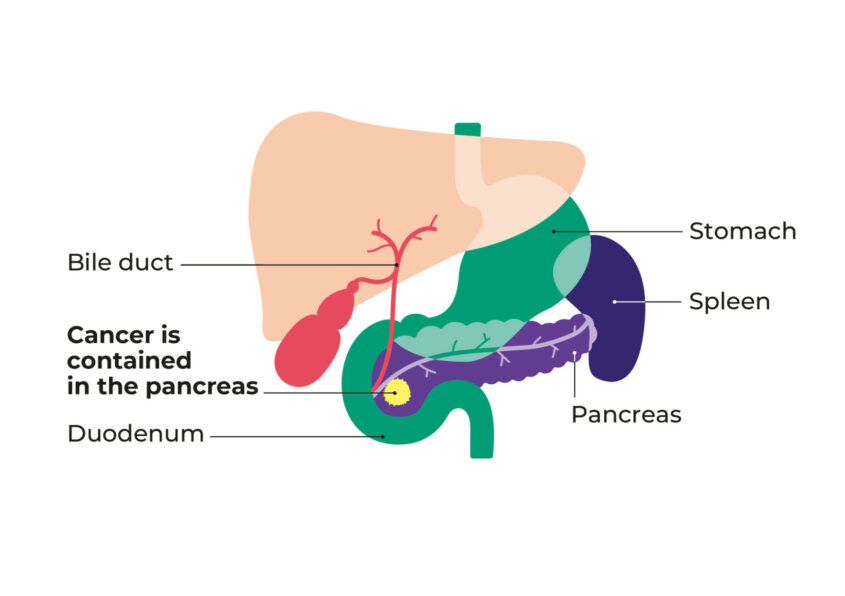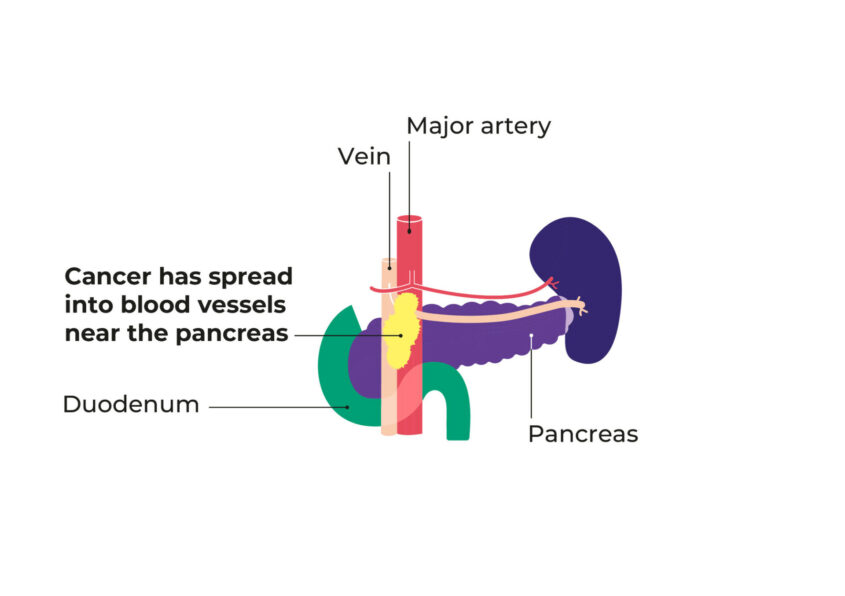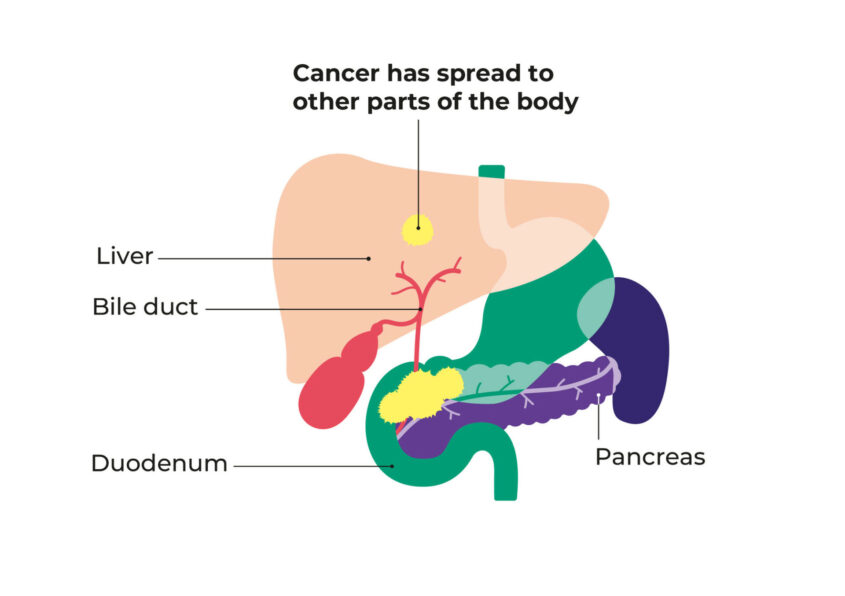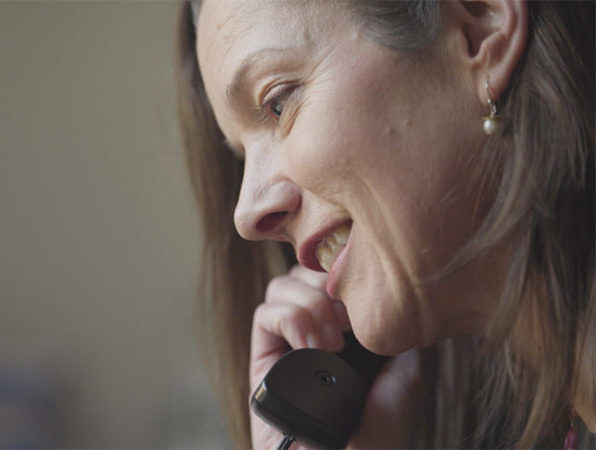Stage 3 pancreatic cancer
The cancer has spread outside the pancreas. It may have spread to the large blood vessels near the pancreas, or to a number of lymph nodes. This is usually locally advanced cancer but it may occasionally be borderline resectable cancer.
If you have locally advanced cancer, it won’t usually be possible to remove the cancer with surgery (inoperable or unresectable cancer). You may be offered chemotherapy, sometimes with radiotherapy, to slow down the growth of the cancer. For a small number of people, this may shrink the cancer enough to make surgery possible.
Borderline resectable cancer is cancer that has grown very close to the major blood vessels near the pancreas. You may be able to have surgery to remove the cancer, but it depends which blood vessels are affected. You may have chemotherapy and possibly radiotherapy to try to shrink the cancer, before your doctors consider surgery.












